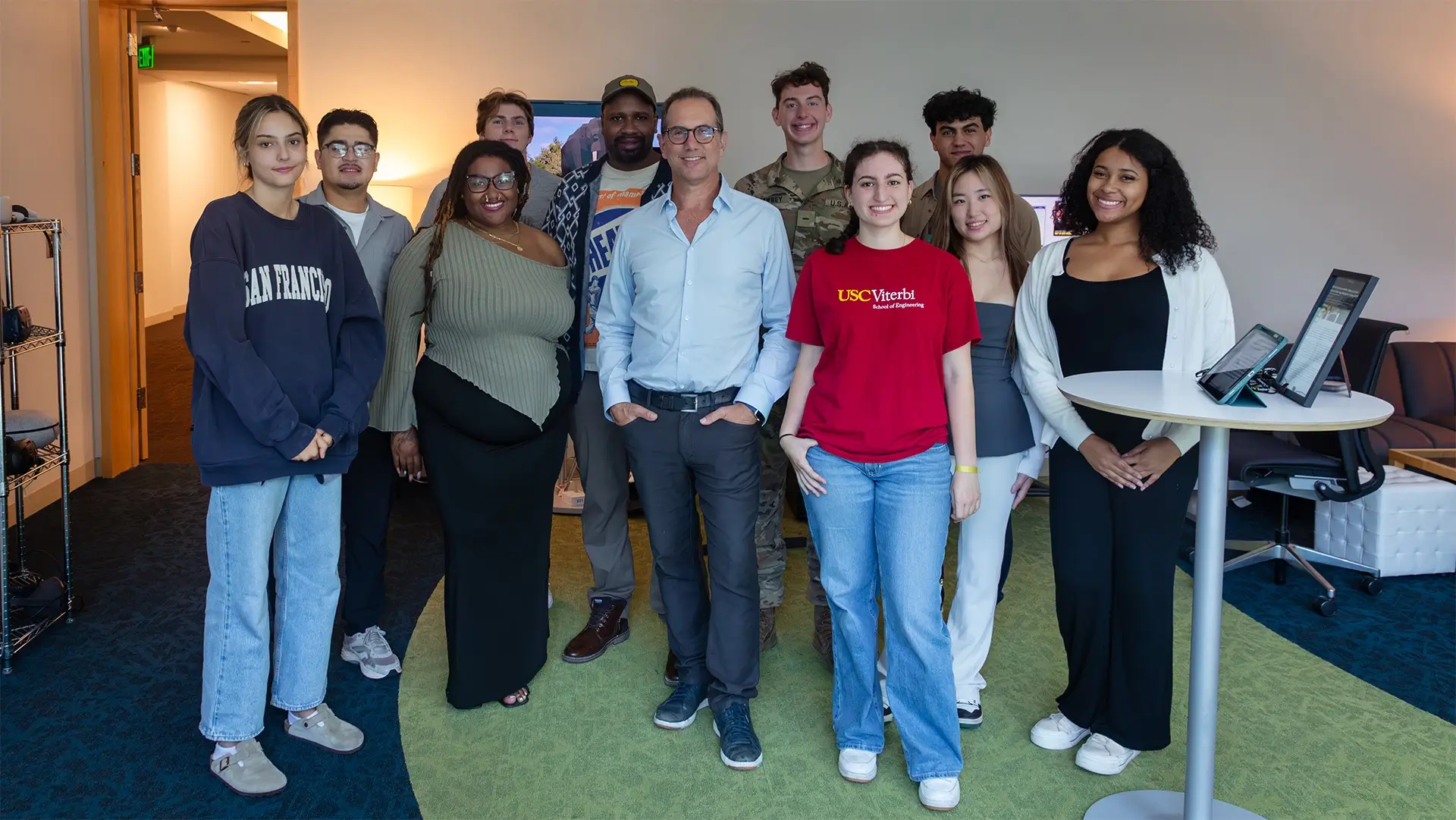BYLINE: David Nelson, Director, Mixed Reality (MxR) and Modeling & Simulation Labs, USC ICT
This summer, the Mixed Reality Lab (MxR) at the USC Institute for Creative Technologies opened its doors to a new generation of curious minds: the 2025 cohort of ICT’s Summer Internship Program. These students—drawn from leading universities across the country—joined our team not only to gain firsthand exposure to cutting-edge immersive technology, but to understand the core mission that drives our lab forward: creating simulation-based experiences that genuinely matter.
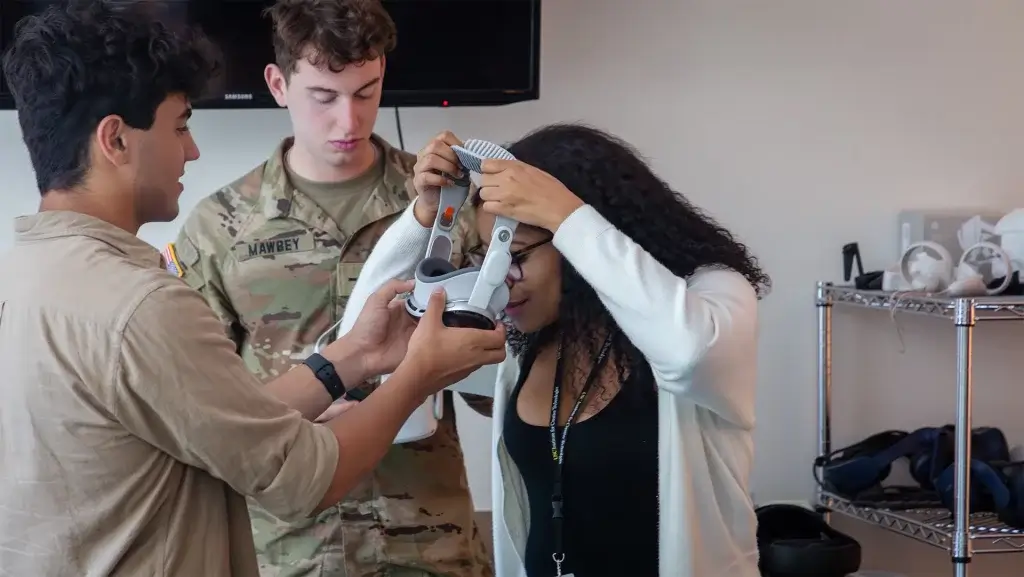
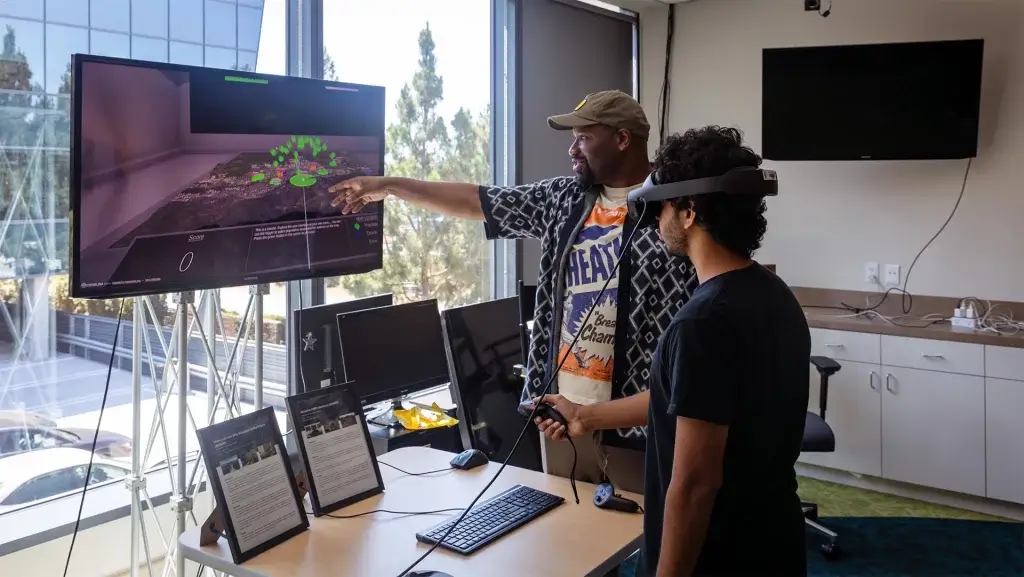
At the MxR Lab, we design and prototype systems that blend physical and digital worlds, often in service of a very real and urgent need—improving military training, readiness, and decision-making. Our goal is to harness emerging technologies in mixed reality to develop adaptive, human-centered tools that can help users build fundamental skills and gain critical insights in complex operational environments.
The interns explored our lab’s contributions to ICT’s broader Modeling & Simulation ecosystem, where our research supports some of the military’s most pressing training needs. This includes immersive, scenario-based simulations that leverage real-time feedback to enhance performance under stress—tools that are already helping soldiers build muscle memory for high-stakes environments.
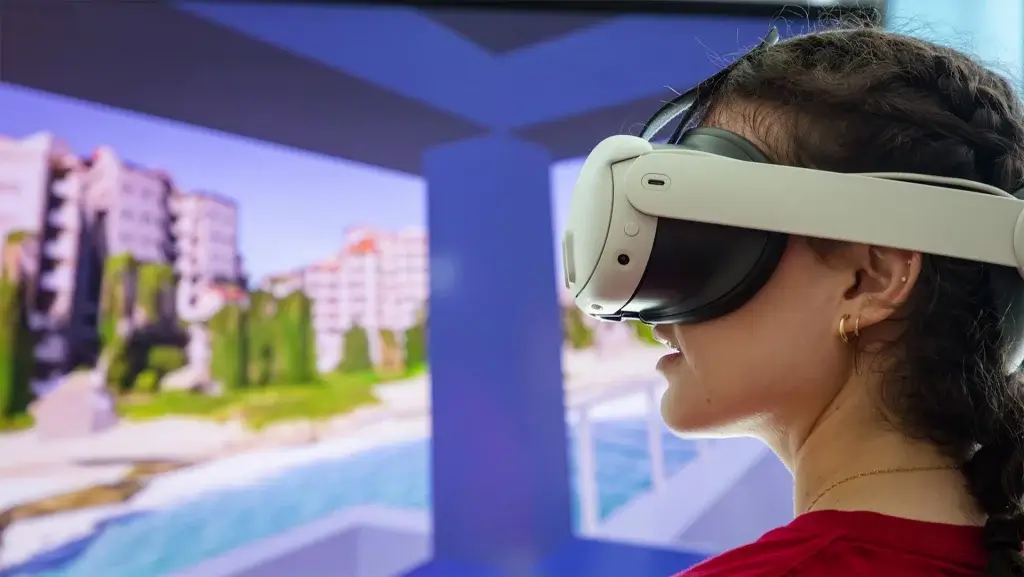
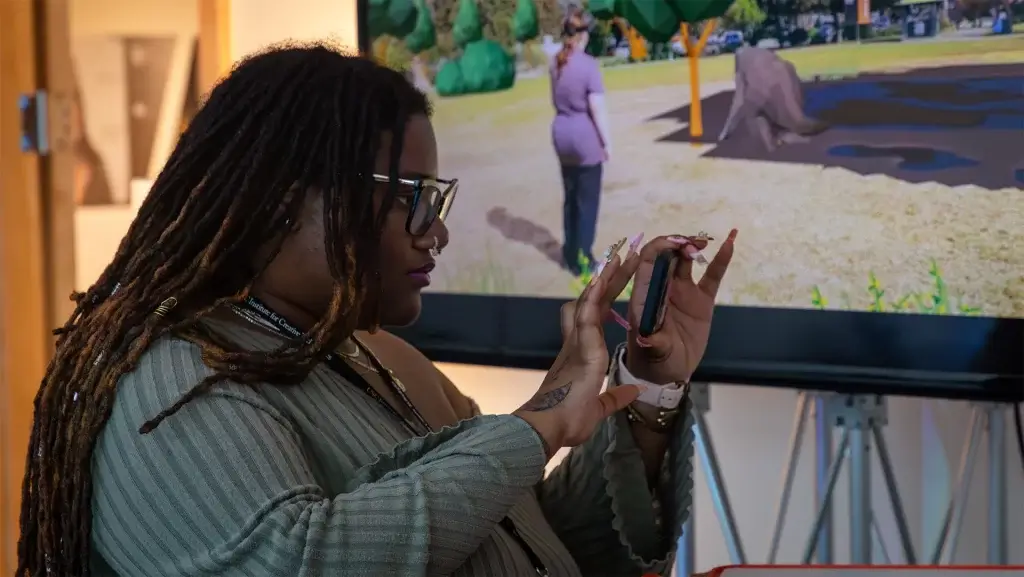
Our systems aren’t simply about visual immersion; they’re about cognitive and emotional engagement. By emphasizing usability and contextual responsiveness, our lab is helping evolve the language of interaction between humans and machines. During their visit to MxR, our interns weren’t merely observing, they were engaging in dialogue with our engineers, artists, psychologists, and cognitive scientists. They asked sharp questions, offered fresh insights, and brought a contagious enthusiasm that reminded all of us why mentorship and knowledge-sharing are so essential to our field.
I was particularly struck by their eagerness to consider the ethical and societal dimensions of our work. These are not just future developers or designers—they are future thinkers and leaders who will decide how immersive technologies are used, and to what ends. Whether in defense, medicine, education, or entertainment, the systems we build today will shape the cognitive landscape of tomorrow.
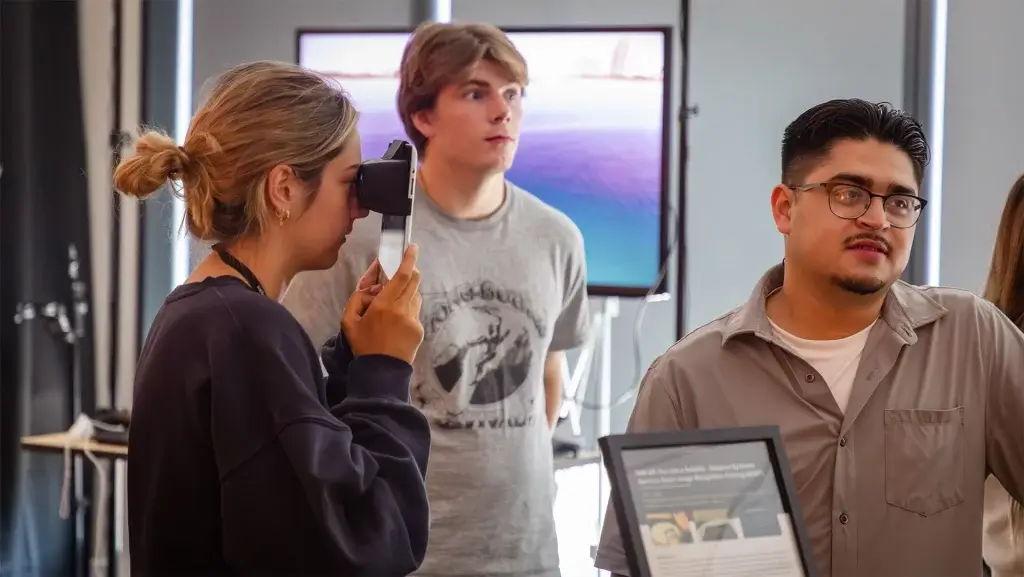
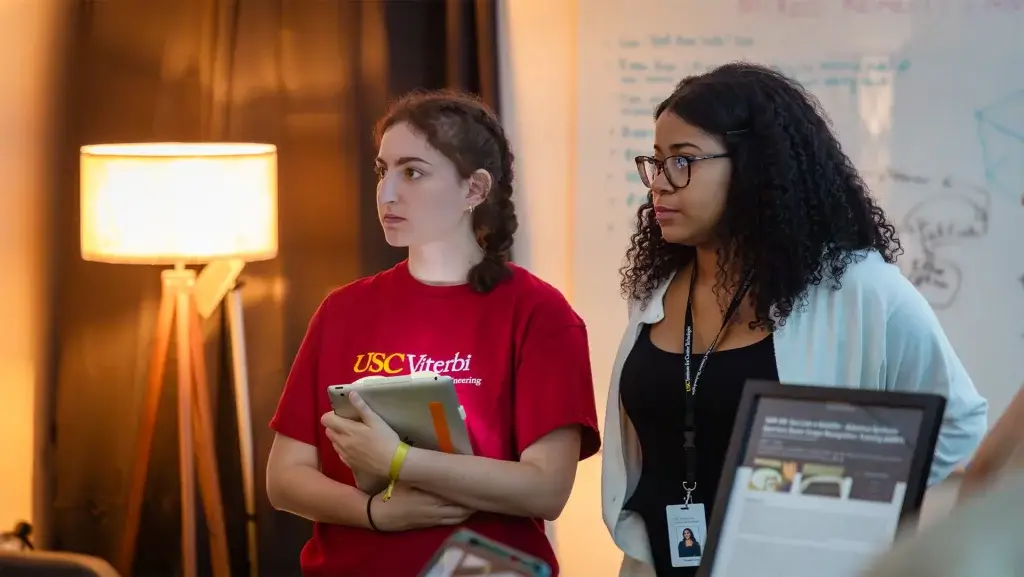
Welcoming these students into our space was a privilege—and a powerful reminder that our responsibility as technologists extends beyond code and circuitry. We must be stewards of experience, advocates for usability, and champions of purposeful design. This year’s cohort affirmed that the future of immersive technology is in capable hands.
//
